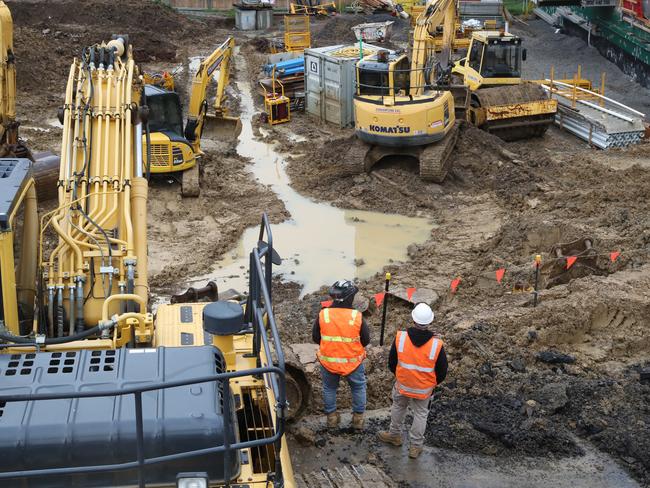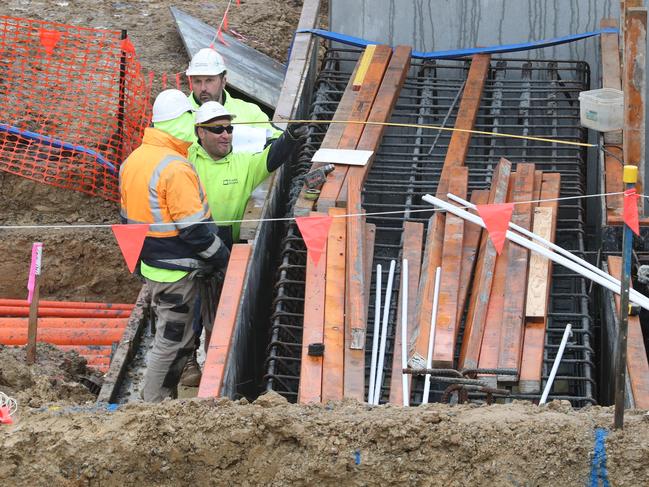‘Clients (government) are from Mars, the contractors are from Venus’: Dr Dominic Ahiaga-Dagbui
Australia’s “abysmal” track record of budget blowouts on big builds — costing taxpayers billions — could be improved with a “tiger team” of experts and incentives for builders, it’s claimed.
Victoria
Don't miss out on the headlines from Victoria. Followed categories will be added to My News.
Better incentives for builders to come under budget and a “tiger team” of experts to challenge contract details would help rein in Big Build blowouts, a new report has found.
Deakin University’s Megaprojects Research Group assessed different contract models used in Victoria, where there have been cost overruns worth tens of billions of dollars in recent years.
It found that one type of contract structure used by Major Roads Projects Victoria, which enables independent experts — called a Tiger Team — to “challenge” contract assumptions and had a “pain share, gain share” incentive scheme, was most effective in controlling costs.
“The model supports the development of a best-for-project environment that is less adversarial and more collaborative than traditional contracting,” it says.

Without the collaborative system — which has been used for $3.4 billion worth of road projects — the report says “the odds of successfully delivering these capital-intensive projects to agreed budgets or timelines are no better than a coin toss”.
Megaprojects Research Group leader, Dr Dominic Ahiaga-Dagbui, said there had been a “pretty abysmal” track record on big builds across the country but there were ways to fix problems and ease the pain for taxpayers.
He said adversarial habits had been in place for infrastructure because there tended to be a focus on competing interests rather than shared goals.
“Clients (government) are from Mars, the contractors are from Venus,” he said.
“The commercial drivers of the two are on a collision course from the outset.”
Dr Ahiaga-Dagbui said a prime example of poor contracting was the West Gate Tunnel, where proponents Transurban, the builders, and the government agreed on costs before knowing what ground conditions were really like.


Instead of working on solutions they locked into positions and fought battles in court, with the result a three year delay and about $4bn in project blowouts.
He also said governments should have the capacity to change their minds on projects after scoping, rather than fear they would be criticised for spending money to defer a build.
“There should be a capacity to say, ‘we thought it was a good project, but conditions have changed and we assessed it, and it’s not a great project at this time’,” he said.
Part of this would be to have experts on hand to guide the process, which the MRPV calls the “Tiger Team”.
This is a pool of highly experienced industry subject industry experts that acts as a “challenge team” along the contract journey.
The report says one Tiger Team member working on road projects in Victoria summed up their role as: “We are here to continually ask the question — how can we get the best value for the state in terms of budget, schedule and quality?”



